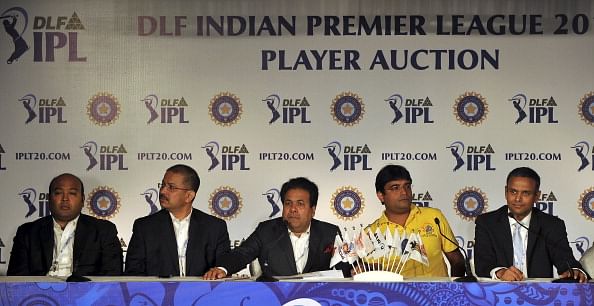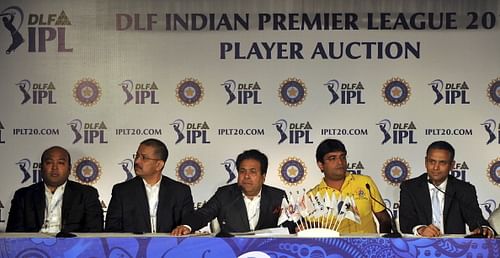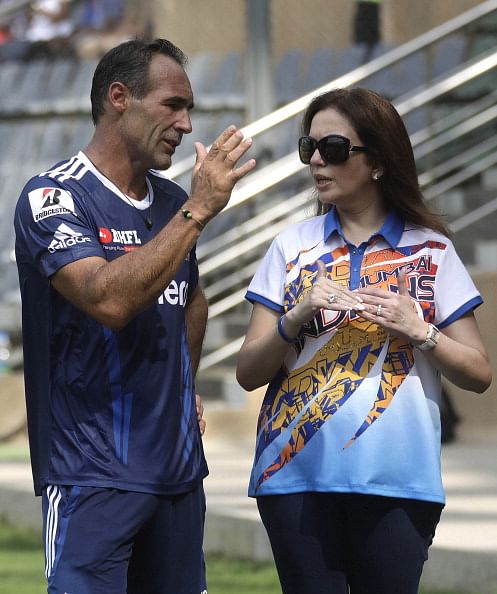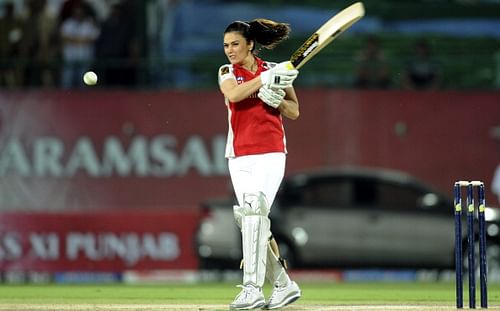
IPL: It ain't about the game

As a purist, I find my joy in watching Test cricket, as the game appeals to me the most in its oldest form. The anticipation of waiting five days to get a result is something I can never get bored of, as during these five days your emotions are sure to oscillate from happiness to despair to elation to eventual relief, depending on the result produced at the end. However, my generation of cricket fans are more into the ‘slam-bang’ format, one which is epitomized by the cash-enriched Indian Premier League.
The IPL has grown to become the richest tournament in world cricket at the moment, and the financial figures projected for the upcoming years make you ogle at them for a good one minute before you gulp down and try to come to grips with the direction the game is headed. The fact is – you just can’t. The recently concluded auction for the upcoming IPL season has made a certain Glenn Maxwell a millionaire. Don’t know who he is? Don’t worry, neither do I. Although, I do hope that Ravindra Jadeja be his adviser-in-chief on how to handle the burden of the price tag and the media-scrutiny he should prepare himself for, if he fails to live up to it.

Nita Ambani (R), Mumbai Indians owner, talks with Mumbai Indians mentor Mike Horn during a practice session at Wankhede stadium. As to what she is enlightning him on is a million dollar question.
Watching the auction live, I was amazed to see the way the proceedings were going on and the coldness in the eyes of Preity Zinta (co-owner, Punjab) and Nita Ambani (owner, Mumbai) when they were caught up in a bidding war to sign the same player. They were like vultures hovering over their prey, silently conveying to the other: “Do what you may, I will snatch him from your clutches at any cost.” Gautam Gambhir and the KKR hierarchy seemed as if they were only there for the free luncheon, and flashed cheap smiles whenever a bidding war ensued between rival camps. The likes of Anil Kumble, Rahul Dravid and VVS Laxman looked as if they were paid to show their face at the event, so that the owner sitting next to them appeared knowledgeable, although Raj Kundra, with his shades on, certainly didn’t.
Sentiments and emotions aside, it’s fair to say that the entire league is a business transaction in which you earn money by playing players you want to and not the the players you need to (Philander went unsold and Rampaul had everybody desperate for his signature because he was part of the squad which won the T20 World Cup last year). The Indian players are rarely rewarded for their performances in the league, whereas the other countries unearth talent; a prime example being Australian Shaun Marsh and Shane Watson, as the league literally helped kick-start their careers. The hectic schedule and travelling makes sure you do not have time to reflect on your weaknesses and defeats, and that is why if a team starts badly, it usually keeps on performing badly. The astronomical ticket prices spectators pay robs them more for a four-hour match than it would if they decided to watch a five-day Test.

Miss Zinta batting with wicket-keeping pads on. Says it all really.
I hope the league does not end up making cricket a franchise sport, but I won’t be surprised if it does, as certain teams have already voiced their displeasure at their board if it schedules a series co-inciding with their IPL assignment. The Sri Lankan board for one, learnt this the hard way. I wont term IPL as a cancer to the game, but the amount of insane money invested in it is surely making the Indian cricket scene crippled like an arthritis patient.
For now, I am looking forward to watching some good Test match cricket when India takes on Australia later in the month, and am hoping that another Kolkata Test (like the one against Australia in ’01) comes around to make the young generation of today realize what cricket is all about.
“Far from all resort of mirth. Save the cricket on the hearth!”
- John Milton